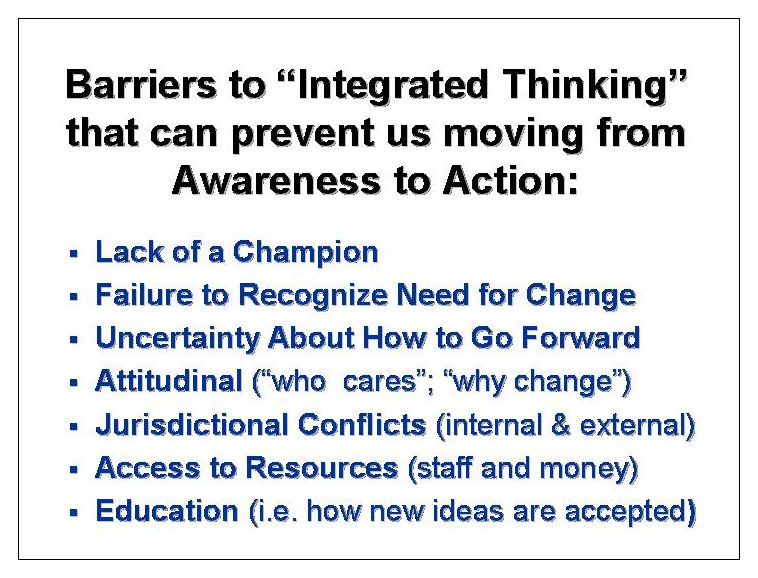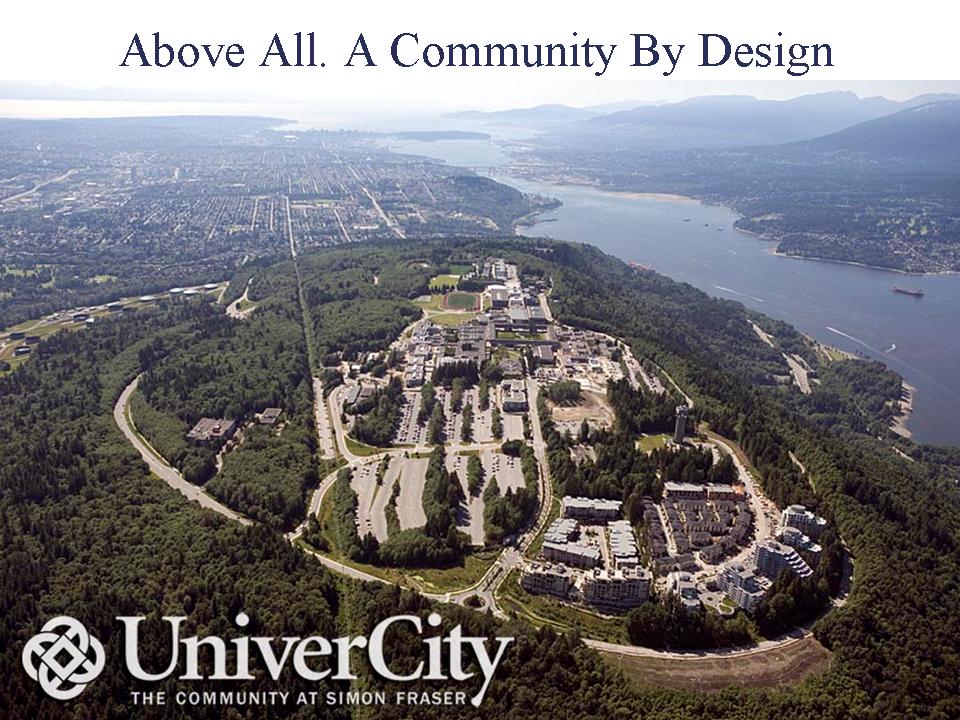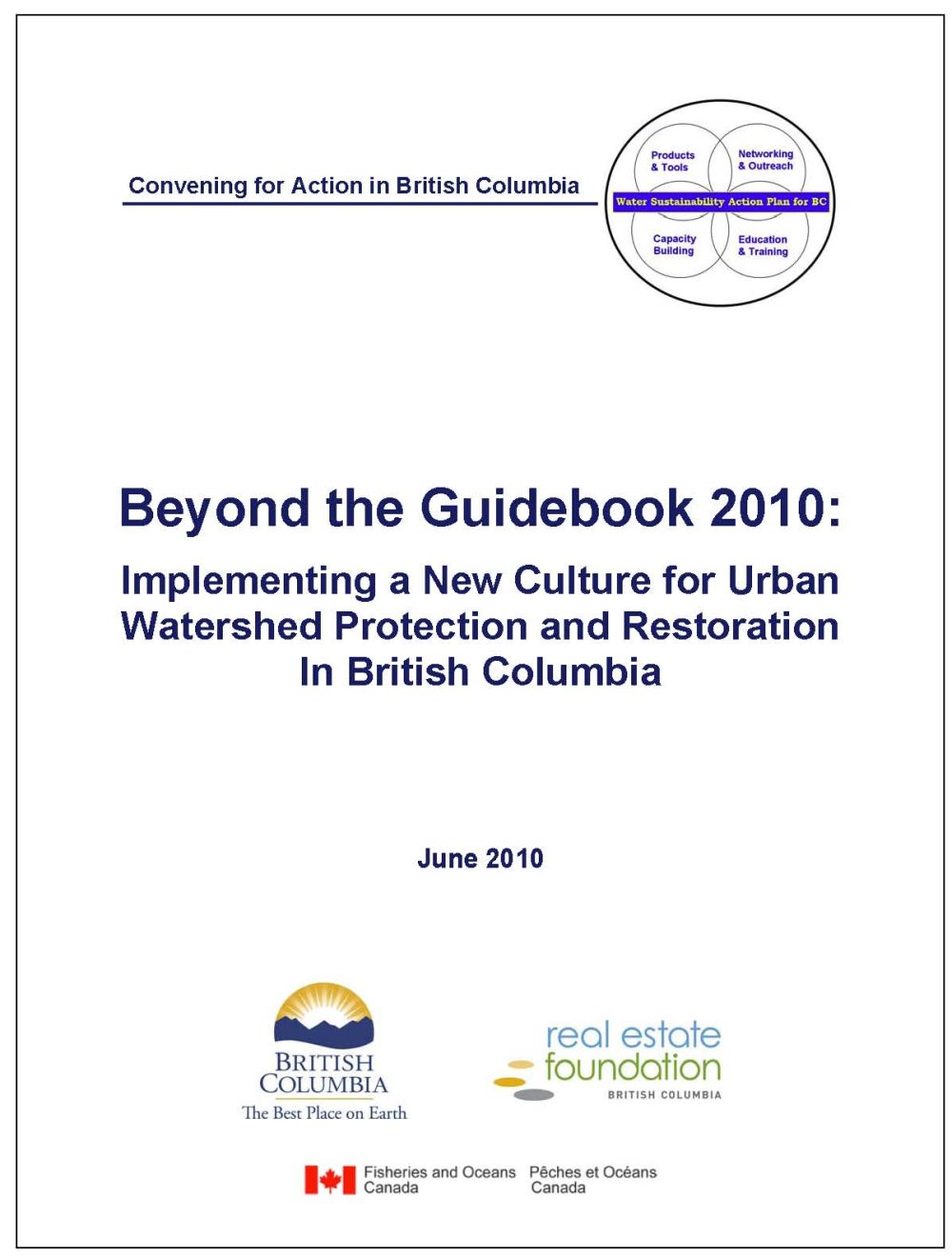Rainwater Management in the 21st Century: A Perspective on Overcoming Fear and Doubt in British Columbia, and Moving from Awareness to Action
Note to Reader:
In October 2010, the Okanagan Basin Water Board (OBWB) and the BC Water and Waste Association are co-hosting a 2-day workshop titled ‘From Rain to Resource: Managing Stormwater in a Changing Climate’.
At the workshop, Kim Stephens will be speaking from his perspective as Chair of the Metro Vancouver Reference Panel. Appointed in 2008, the advisory Reference Panel reports directly to the regional politicians. The title of his presentation is From Stormwater Management to RAINwater Management: Implementing a Course Correction in Metro Vancouver.
The article below provides context for the presentation by Kim Stephens. He invokes the key role played by UBC’s Patrick Condon in providing timely inspiration at a pivotal moment in BC’s ‘green infrastructure history’.

From Rain to Resource
“The goal of the From Rain to Resource Workshop is to share positive and innovative developments in rainwater management and to discuss how barriers to change are being overcome in communities in BC and beyond,” stated Anna Warwick Sears, executive director of the OBWB.
Overcoming Fear and Doubt in BC
At a rainwater conference hosted by the University of British Columbia in June 2007, this question was posed to a panel of practitioners: Obstacles to innovations; how to introduce changes into stormwater management?
Kim Stephens drew on his Metro Vancouver experience to tell a story that provided the flavour of what it was like to be in the hot seat when introducing a new way of thinking and doing in 2000. He was project manager and principal author of Stormwater Planning: A Guidebook for British Columbia, released by the Province in June 2002.
 “During the 2000-2001 period we had to overcome fear and doubt in order to move ahead with projects such as the East Clayton Sustainable Community in Surrey, and UniverCity on Burnaby Mountain. It was David Reid who coined the overcoming fear and doubt mantra; it stuck and became an integral part of the UniverCity story,” Kim Stephens told the UBC audience.
“During the 2000-2001 period we had to overcome fear and doubt in order to move ahead with projects such as the East Clayton Sustainable Community in Surrey, and UniverCity on Burnaby Mountain. It was David Reid who coined the overcoming fear and doubt mantra; it stuck and became an integral part of the UniverCity story,” Kim Stephens told the UBC audience.
 “By early 2001, we were literally hanging on by our fingernails. At the time, it was Patrick Condon of UBC who said: ‘If we fail, it will be a generation before anyone will even have the opportunity to try again; so we must not fail’. Well, we did not fail. And because we succeeded with East Clayton and UniverCity, those hard-fought successes have ultimately made it possible to change land development practices to capture rain where it falls,” concluded Kim Stephens.
“By early 2001, we were literally hanging on by our fingernails. At the time, it was Patrick Condon of UBC who said: ‘If we fail, it will be a generation before anyone will even have the opportunity to try again; so we must not fail’. Well, we did not fail. And because we succeeded with East Clayton and UniverCity, those hard-fought successes have ultimately made it possible to change land development practices to capture rain where it falls,” concluded Kim Stephens.

Understanding the Context
In 2000, translating high expectations into practical design guidelines meant revisiting accepted drainage engineering practice. To read the complete story from which the above was extracted, click on Overcoming Fear and Doubt to Implement Changes in Infrastructure Standards, posted on waterbucket.ca in 2007. This provides historical context.
Looking back, and in terms of ‘green’ rainwater management, much of what has happened in British Columbia can actually be traced back to October 1997 and who was in the room when the Union of BC Municipalities convened a focus group workshop on the Fish Protection Act. To learn more about the historical context, click on these two links:
- A decade ago the SmartStorm Forum Series set in motion a chain of events that are still reverberating in British Columbia
- A Look Back to the SmartStorm Forum Series: Genesis for the Water Balance Model
UniverCity on Burnaby Mountain provided an opportunity to demonstrate how a new, sustainable community can integrate rainwater and watercourse management with urban design, starting where the rainfall lands. To read the complete story posted in October 2007, click on UniverCity, the Sustainable Community at the top of Burnaby Mountain: Implementing the vision, objectives and guiding principles of the Brunette River and Stoney Creek watershed plans
In its July 2009 Final Report to Metro Vancouver regional politicians, the advisory Reference Panel recommended that municipalities re-focus Integrated ISMPs on watershed targets and outcomes so that there are clear linkages with the land use planning and development approval process. To read the complete story, click on Re-Focus Integrated Stormwater Management Plans on Outcomes, recommends Metro Vancouver Reference Panel

Beyond the Guidebook 2010
Released in June 2010 at the ‘Dialogue in Nanaimo’, Beyond the Guidebook 2010 describes how water sustainability can and will be achieved through implementation of green infrastructure policies and practices.
Beyond the Guidebook 2010 demonstrates that the practitioner culture is changing as an outcome of collaboration, partnerships and alignment; and provides local governments with ‘how to’ guidance for developing outcome-oriented urban watershed plans.
To download a copy, click on Beyond the Guidebook 2010: Implementing a New Culture for Urban Watershed Protection and Restoration in British Columbia


